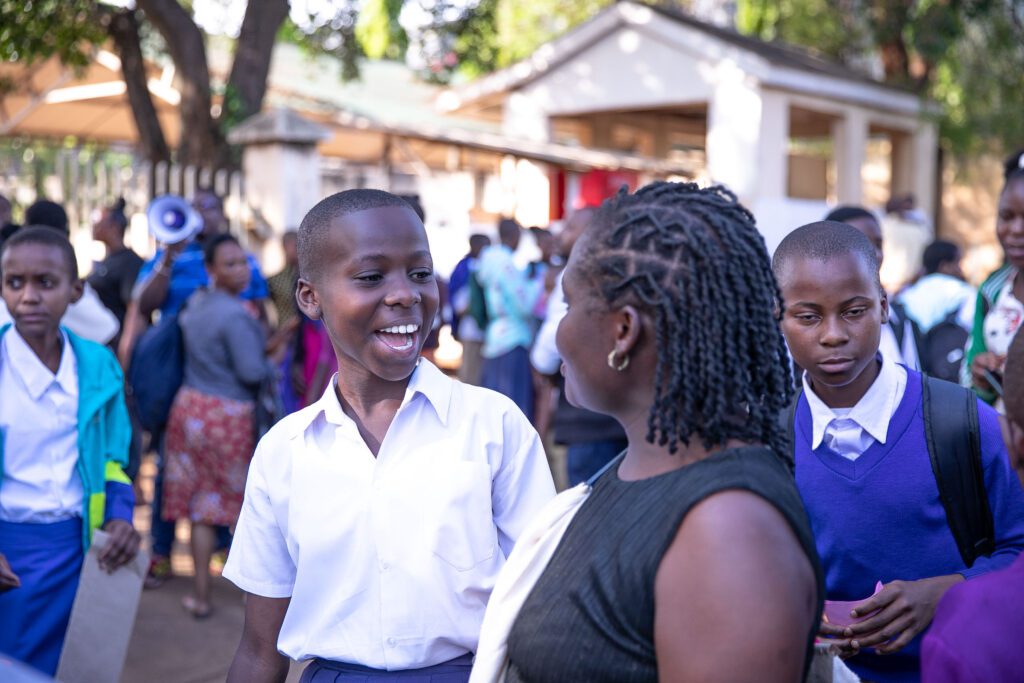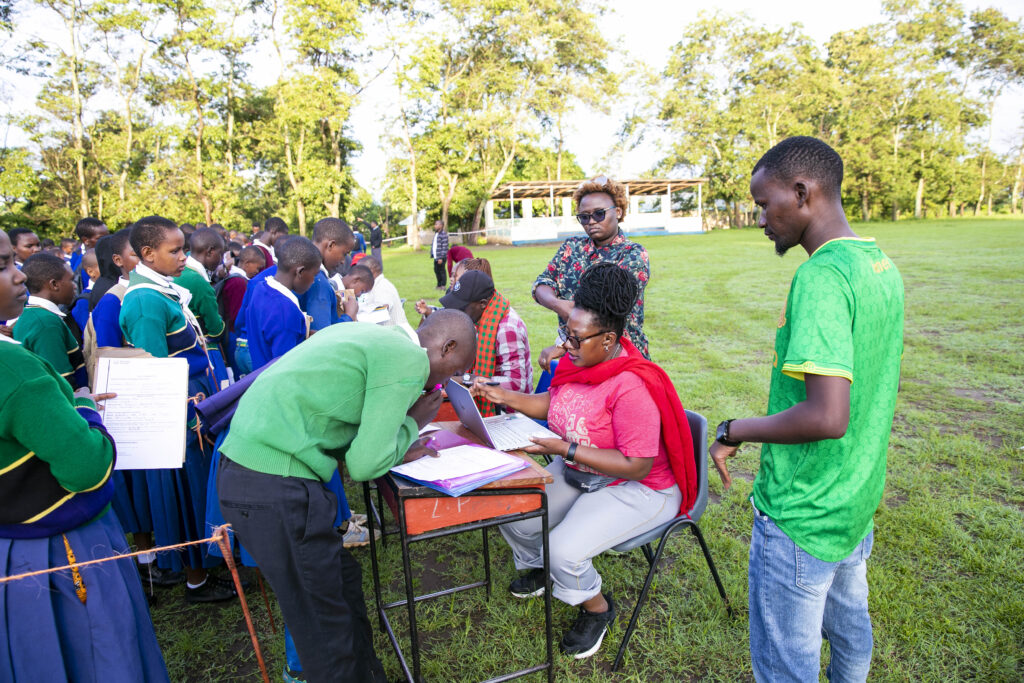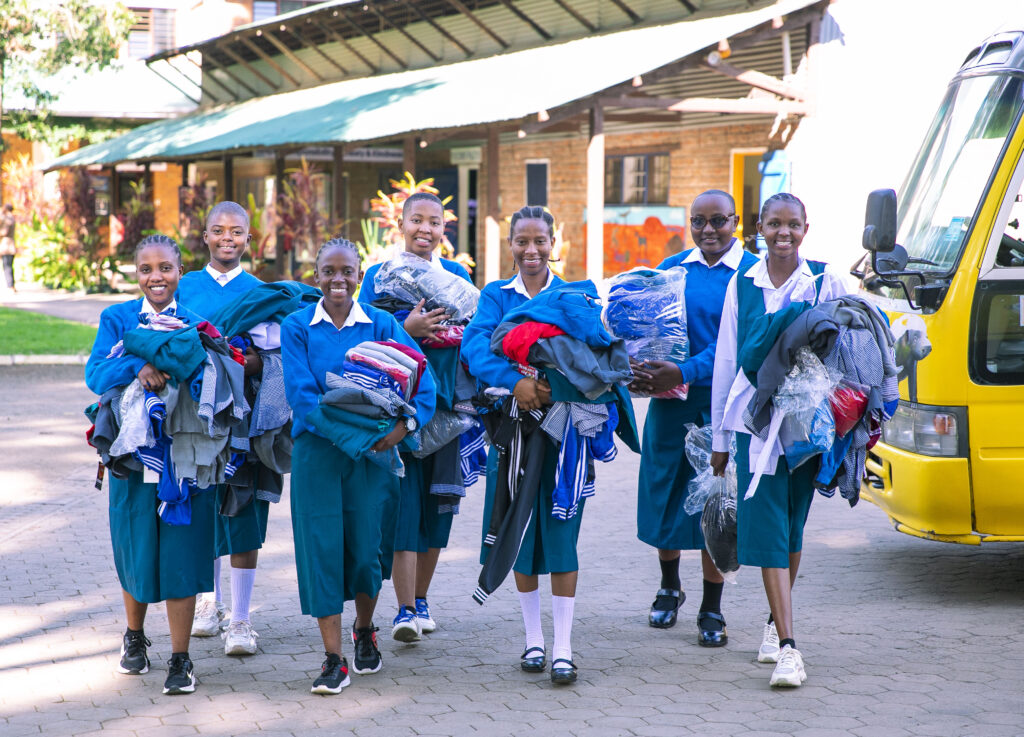
Every year, hundreds of students join St Jude's on 100% full scholarships at the primary and secondary
school levels. This is made possible through a rigorous scholarship application process that involves
multiple stages, from the initial invitation to final enrolment. The whole team of staff, volunteers, and
parents comes together to make it happen.
“The entire process typically takes anywhere between two to four months,” explains Glory, Assistant
Team Lead responsible for organising the scholarship application process. “But sometimes, especially at the end of the year, we have to squeeze everything into a much shorter timeframe,” she adds.
There are three key stages of schooling in Tanzania, the seven years of primary school from Standard 1
to 7, then four years of secondary school from Forms 1 to 4 in Ordinary Level (O Level) studies, and
finally the final two years of secondary school, Forms 5 and 6 in Advanced Level (A Level) studies.
St Jude’s aligns its scholarship entry points with this structure, offering opportunities for students in
Standard 1, Form 1, and Form 5.
“At each stage, prospective students must apply for a scholarship,” says Glory. “The opportunities are
highly sought after and competitive. Although the process is rigorous, we ensure it is both fair and
transparent,” she adds.
The scholarship application process reflects St Jude’s mission of providing free, quality education to
bright, poor children in Tanzania. It is divided into two main parts: academic testing to assess aptitude
and poverty assessments, including home visits and interviews, to determine financial need.
St Jude’s works closely with local and central government bodies to identify students that would most
benefit from the scholarship. One such way is through the national examination results —standardised
assessments conducted by the Tanzanian government—are a key tool in identifying potential
candidates. Based on these results, St Jude’s invites the top performing students across three northern Tanzanian regions to apply for a scholarship.

“Every year, thousands of candidates show up to apply,” says Glory. “Our academic team prepares a
series of exams to evaluate their academic abilities, and only those that meet our academic
requirements progress to the next stage.”
One significant challenge Glory and her team face is the tight timeline. For example, Standard 7 results
are typically released at the end of the year, leaving only a few weeks to complete the scholarship
application process before the new academic year begins in January.
“We often have to condense three to four months of work into just a few weeks,” explains Glory.
“Thankfully, we have the best staff around that rallies behind us. But it’s always a race against time,”
she adds.
After the results are released, Glory’s team compiles an invitation list and enlists the help of St Jude’s
alumni and community service volunteers to distribute invitations. These volunteers cover hundreds of
kilometres and overcome logistical and geographical challenges to ensure the right students are
reached.
The next steps involve scholarship application days at designated centres, followed by home visits to
verify applicants' financial needs. It’s an enormous undertaking for St Jude’s staff and volunteers, many of whom work overtime, including weekends, to ensure the process is a success and on track.

“Each year, we rise to the challenge,” says Glory. “Moments like these remind us of our shared mission
to provide opportunities to those who need them most,” she adds proudly.
In 2025, St Jude’s aims to enrol 190 Form 1 students, ensuring that more bright, underprivileged
children can access the quality education they deserve.